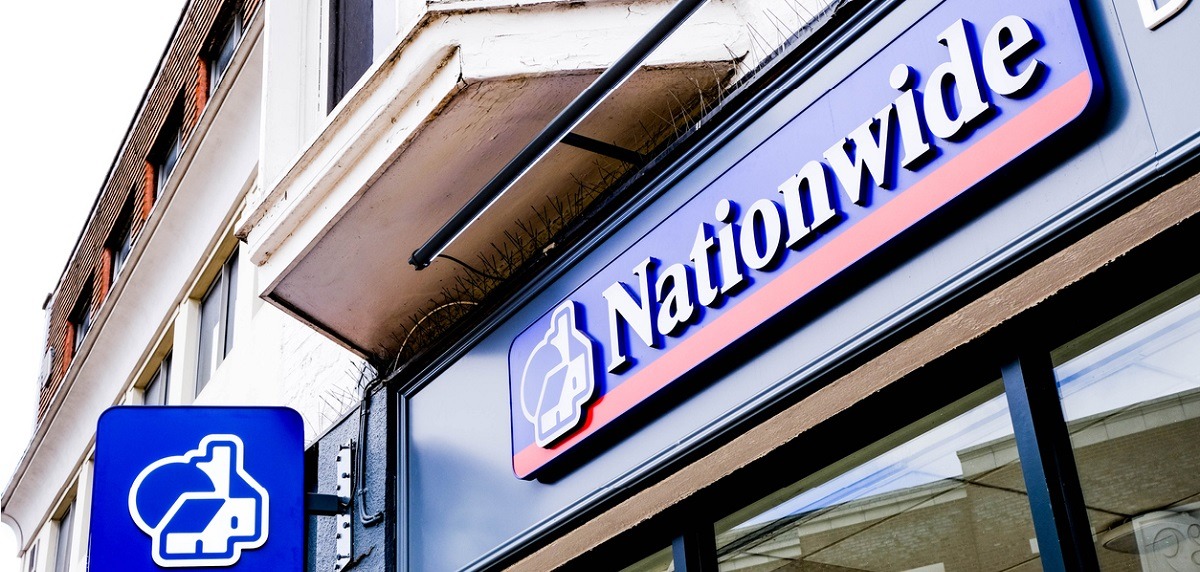With a sixth of households currently facing “serious difficulties” with their finances, are we about to see a proliferation of ‘we’re here for you’ messages from banks in an echo of the pandemic?
Nationwide stands out as a company really defining itself around this issue. As well as offering a cost-of-living hub on its website, the mutual has also launched online and in-branch events to provide help with managing money.
Most meaningful for customers will be the increase in interest rates on its savings accounts, with its FlexDirect account now paying an introductory rate of 5%. For Nationwide, these activities offer a natural fit with its brand positioning as something more than a bank – a company that looks out for the interests of its members.
Amongst the big four high street banks, both Lloyds and NatWest have given the issue prominent billing on their home page, offering the likes of financial advice.
Meanwhile, outside of consumer banking, while not explicitly billed as solutions to the cost of living crisis, Hargreaves Lansdown and Royal London have both created tools to help customers assess and manage their finances.
However, recent research by Personetics found that 63% of customers worldwide had heard nothing from their bank about how to deal with the crisis.
Will (and should) more financial services organisations join the trend?
Tired of empty promises
There is a limit to how helpful advice around budgeting or planning can be, considering that the crisis has been driven by external price rises. There is even a danger that it might come across as patronising or hypocritical if it is not married up with other types of action.
Lucy Halley, Head of Strategy, London at Havas CX helia, says that the agency’s research has revealed 71% of consumers are tired of “empty promises” from brands.
“They demand that brands walk the walk, not just pay lip service to their commitment.
“What won’t work are Covid-esque blanket declarations of support unless they are accompanied by action. Please don’t say you’re here for us when so many are struggling to make ends meet.
What can marketers do? While they can’t change macroeconomic reality or decrease energy bills, they can tap into their data to help customers find genuine savings.
Dorel Blitz, VP Strategy and Business Development at Personetics, says the sector is well-placed to offer support.
“Their access to financial transaction data provides significant insight into current and future customer behaviours and financial pain points. By harnessing this data, they can offer personalised advice and guidance to help those who are struggling manage their money.”
Dorel argues that while the onslaught of ‘we’re here for you’ messaging may have led to fatigue and irritation from customers, this shouldn’t be a reason not to have a voice on the current crisis.
“Customers are likely to welcome this communication during the current crisis, but only if it comes with practical, data-driven, personalised financial advice. Our research revealed that customers want their financial institutions to suggest ways for them to save money each month and provide tailored recommendations on cheaper financial products.
“They want to see their banks being proactive and automate financial decisions that would ease some pressures, such as flagging advance signs of financial stress and responding with solutions.”
Lucy Halley of Havas says: “What’s required is a pause of all non-relevant BAU product promotions (unless they are indeed helpful), and to lean into and apply their financial expertise to good use.”
Andrew Stevens, Principal of Banking and Financial Services at Quadient, adds that this should extend beyond simple functional communications and encompass advice: for example, new offers or rates that can help save money.
“For instance, take the recent news about rising interest rates for savers. Customers shouldn’t be expected to know how to ‘claim’ new interest rates – it’s crucial that banks are reminding their savers to get in touch, and are sending these reminders via the right communication channels.”
The power of new tech
One useful tool to achieve this will be open banking, which allows banks and other providers to build up a more holistic picture of a customer’s finances. Within the fintech sector, Snoop, an app which automatically looks for savings for its customers using open banking, has given the cost of living issue prominent billing on its website.
“Because inflationary pressure will not impact everyone evenly, we’ve provided our customers with personalised breakdowns showing how increased prices and taxes will impact their finances,” Scott Mowbray, co-founder and CCO of Snoop, tells FSF.
“Snoop can then take that picture and provide contextual, timely and actionable insight(s) on how to deal with the cost-of-living crunch based on individual circumstances.
“Ultimately it’s about enabling people to control the things they can, talking their language, making money relevant to the individual – bespoke and personal – not one-size fits all and transactional.”
There is clearly a role for banks and other financial services providers to communicate with customers during this crisis. The good news is that with the data and analytics tools now available, warm words can be backed up with cold hard cash.
Perhaps unsurprisingly, it is the agile fintechs that are best placed here. Starling, for example, has upgraded its spending insights tool and added a new Bills Manager feature to help people with budgeting. All of these tools are available within customer’s day-to-day banking app.

“The new capabilities have been launched as the nation faces a cost of living crisis,” Starling said in a statement. “By arming customers with more knowledge on their spending patterns, Starling aims to empower them to make more informed spending decisions that better align with their financial goals.”
For Starling, this is a natural extension of its goal to become an all-purposes money hub. While the challenger bank eschews open banking, it offers its own API to connect bank accounts to other services such as investments or pensions.
“When you consider the behaviour of UK retail banks recently – hiking interest rates on lending quickly and dragging their heels on savings rates – you can see that there’s very little correlation between most big banks’ stated purpose and the reality faced by customers,” says Scott Mowbray of Snoop.
“Banks love inertia, for example they’ll proudly tell investors about the growth in ‘low-cost balances’ – a euphemism for destroying people’s wealth as customers sit on deposit balances paying next to nothing in interest. The cost-of-staying on poor deals is exacerbating the cost-of-living crunch for many which is why Snoop works hard every day to help point people at better deals.
“The large UK banks did a good job during Covid when the world was looking – now is the time to live up to their slogans, help people make more of their money and truly be on the side of their customers.”

